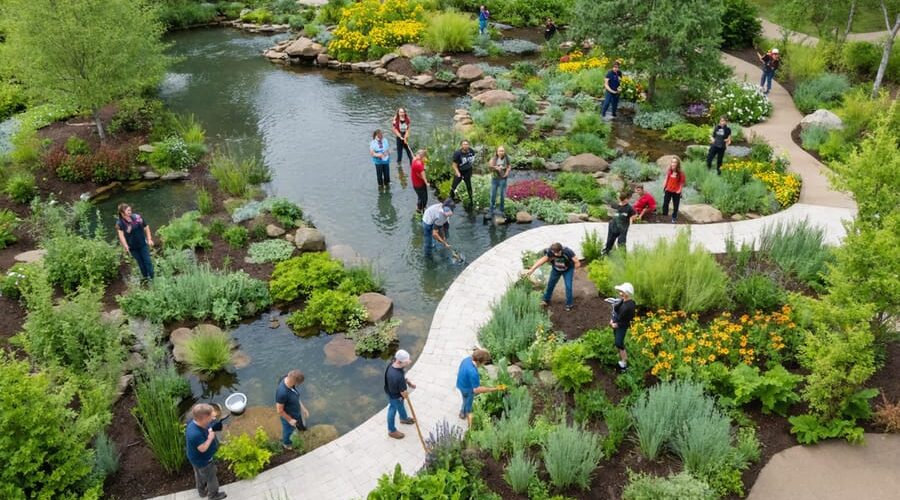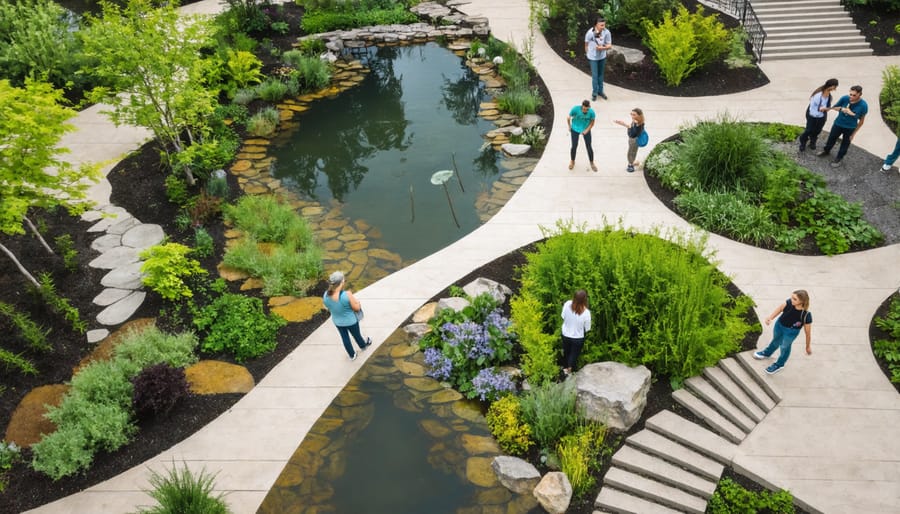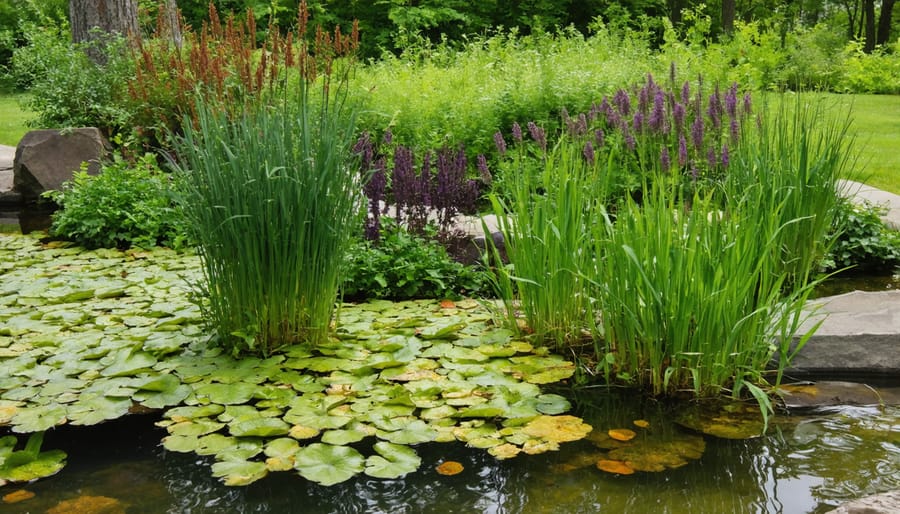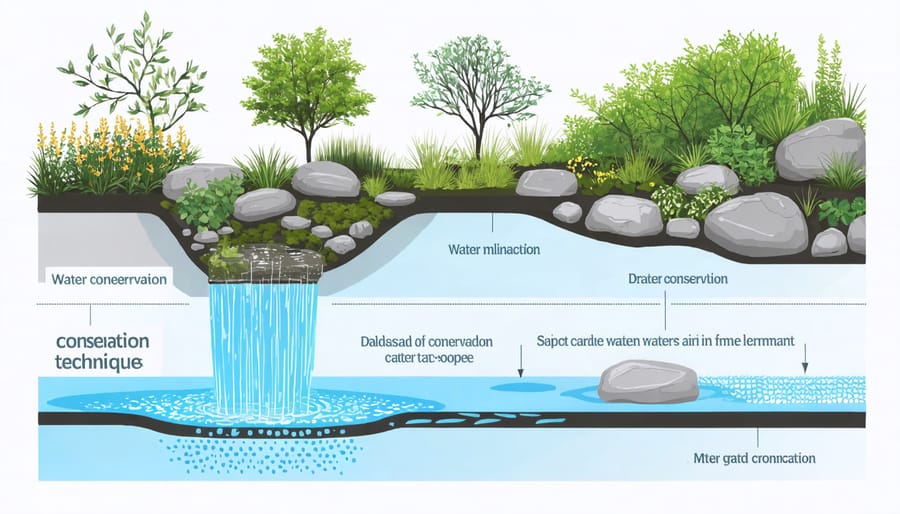
Wisconsin’s Revolutionary Water Garden Network Transforms Local Communities
Transform your local water conservation efforts by joining the Freshwater Collaborative of Wisconsin, a groundbreaking partnership uniting 13 University of Wisconsin System campuses in their mission to tackle urgent water challenges. This innovative initiative combines hands-on research, community engagement, and educational opportunities to protect Wisconsin’s most precious natural resource – our freshwater ecosystems. Whether you’re a budding scientist, concerned citizen, or water garden enthusiast, the Collaborative offers unique ways to contribute to water sustainability while learning practical conservation techniques. By connecting academic expertise with real-world water management challenges, this program empowers participants to make meaningful impacts in their communities through water-smart gardening practices, citizen science projects, and sustainable landscaping solutions. Join a growing network of water stewards working to ensure clean, abundant freshwater resources for future generations.
Building Community Through Water Gardens
Educational Partnerships
The Freshwater Collaborative brings together Wisconsin’s 13 public universities in a unique educational partnership that benefits students and communities across the state. Each participating university contributes its specialized knowledge and resources, creating a rich network of learning opportunities focused on freshwater science and conservation.
Students can take advantage of cross-campus courses, research projects, and hands-on field experiences. For example, UW-Milwaukee offers specialized training in urban water management, while UW-Stevens Point provides expertise in watershed studies. This collaborative approach allows students to gain diverse perspectives and skills they wouldn’t find at a single institution.
The partnership extends beyond traditional classroom learning, offering internships with local water management organizations, community outreach programs, and citizen science initiatives. High school students can participate in summer camps and workshops, sparking early interest in water-related careers.
Through shared resources and expertise, these educational partnerships are preparing the next generation of water stewards while making water science education more accessible to Wisconsin residents of all ages.
Community Engagement Projects
The Freshwater Collaborative has successfully launched several community water garden initiatives across Wisconsin, bringing together students, local residents, and environmental experts. One standout project is the Milwaukee River Basin Garden, where community members maintain rain gardens and bioswales that naturally filter stormwater runoff. In Madison, the Lake Mendota Shoreline Project has transformed unused urban spaces into thriving water gardens, creating habitat for native species while educating visitors about water conservation.
The Root River Initiative in Racine County showcases how these gardens can serve multiple purposes. Local families tend to vegetable gardens that use innovative irrigation systems, while students conduct water quality research and monitor plant growth. In Green Bay, the Fox River Community Garden combines traditional vegetable plots with water-smart features like permeable pathways and rain barrels, demonstrating how food production and water conservation can work hand in hand.
These projects not only beautify neighborhoods but also serve as living laboratories for water research and community education.

Sustainable Water Gardening Practices
Native Plant Integration
Wisconsin’s native plants play a vital role in creating sustainable and ecologically beneficial water gardens. The Freshwater Collaborative encourages incorporating indigenous species like Blue Flag Iris, Marsh Marigold, and Cardinal Flower, which have naturally adapted to the state’s climate and soil conditions.
These native plants not only enhance the visual appeal of water features but also provide essential habitat for local wildlife. Species like Swamp Milkweed attract pollinators, while Rush and Sedge varieties help stabilize shorelines and filter water naturally. The program particularly emphasizes the use of Water Plantain and Blue Vervain, which thrive in Wisconsin’s varying water conditions.
Participants learn proper planting techniques specific to each species and understand their growth patterns throughout Wisconsin’s seasons. The collaborative offers workshops where enthusiasts can get hands-on experience with native plant selection and maintenance. They also receive guidance on creating balanced ecosystems that support local biodiversity.
By choosing native plants, water gardeners contribute to preserving Wisconsin’s natural heritage while creating low-maintenance, drought-resistant landscapes. The program provides resources for identifying suitable native species based on specific water garden conditions, ensuring successful integration and long-term sustainability.

Water Conservation Methods
The Freshwater Collaborative emphasizes practical water conservation techniques that anyone can implement. Rain gardens are a popular method, using native plants to capture and filter stormwater runoff. Many participants have created simple rain barrel systems to collect roof water for garden irrigation, saving hundreds of gallons annually.
Smart irrigation scheduling has proven effective, with participants using soil moisture sensors and weather-based controllers to reduce water waste. Some community members have implemented xeriscaping principles, choosing drought-resistant plants and efficient landscaping designs that naturally conserve water.
The collaborative promotes water-saving fixtures like low-flow faucets and dual-flush toilets, which can reduce indoor water use by up to 30%. Participants also learn about proper lawn maintenance, including optimal watering times and grass height recommendations to minimize evaporation.
Simple practices like fixing leaks promptly and using mulch to retain soil moisture have shown significant results. The program encourages hands-on learning through workshops where residents can build their own water-saving systems and learn maintenance tips from experienced gardeners.

Getting Involved
Local Project Opportunities
Looking to get your hands wet with local water projects? The Freshwater Collaborative of Wisconsin offers exciting opportunities for hands-on involvement in water garden initiatives across the state. Current projects include the Madison Rain Garden Program, where volunteers help design and install sustainable drainage systems in urban areas, and the Milwaukee River Basin restoration effort, which focuses on creating natural filtration gardens along waterways.
Upcoming initiatives include the Green Bay Shoreline Enhancement Project, scheduled for spring 2024, which will involve creating floating gardens and wetland buffer zones. In Eau Claire, the Community Water Garden Workshop Series will teach participants how to build and maintain eco-friendly water features while contributing to local conservation efforts.
Whether you’re a beginner or experienced gardener, these projects welcome all skill levels and provide training, tools, and materials. Local coordinators work closely with participants, ensuring everyone can contribute meaningfully while learning valuable water gardening skills. Check your local extension office for specific dates and registration details.
Resources and Support
The Freshwater Collaborative offers a wealth of resources to support your water-related projects and interests. Students and community members can access comprehensive online libraries, research databases, and digital learning tools through the program’s web portal. Monthly webinars and workshops provide hands-on learning experiences, while dedicated mentorship programs connect participants with expert guidance from Wisconsin’s leading water researchers and practitioners.
Equipment and testing facilities are available at partner institutions across the state, making it easy to conduct water quality assessments and research projects. The collaborative also maintains a network of shared laboratories and field stations where participants can gain practical experience. Financial support through grants and scholarships helps fund innovative water projects and research initiatives.
A dedicated support team is always available to answer questions and help you navigate the various programs and opportunities available through the collaborative.
The Freshwater Collaborative of Wisconsin stands as a shining example of how community engagement and environmental stewardship can create lasting positive change. By bringing together students, educators, and water enthusiasts, this initiative has created exciting opportunities for hands-on learning and real-world problem-solving in our water ecosystems. Whether you’re a student looking to build a career in water science, a homeowner interested in sustainable water practices, or simply someone who cares about preserving Wisconsin’s freshwater resources, there’s a place for you in this collaborative effort. Join us in protecting and celebrating our state’s precious water resources – your participation can make a real difference in ensuring a sustainable water future for generations to come. Get involved today and become part of Wisconsin’s growing community of water stewards!
